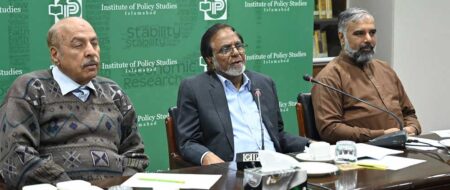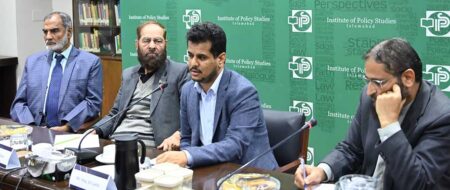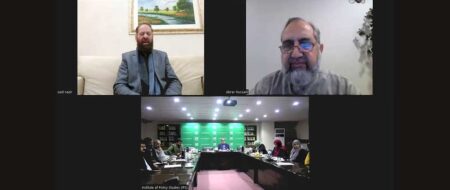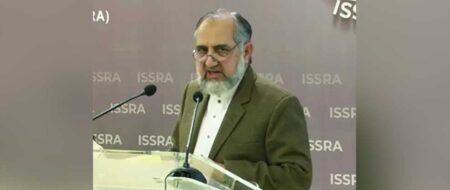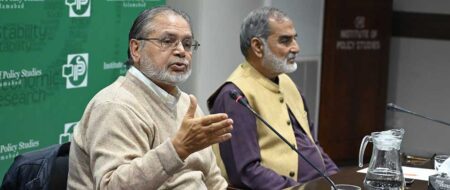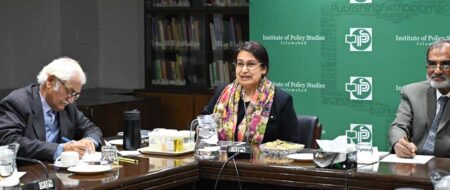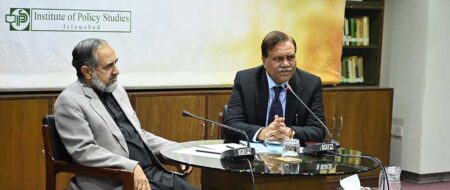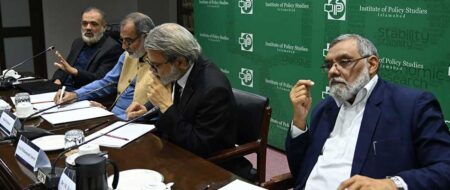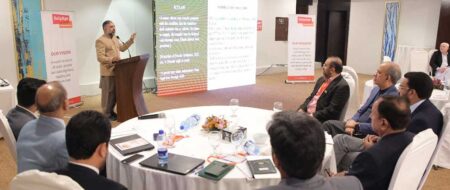Seminar on unexplored potential of Inland Water Transport System in Pakistan
Islamabad (June 20, 2013) “Transport your cargo through rivers and canals; save the money and environment; also earn money for carbon credits”, was the unanimous call of navigation experts, surveyors, industrialists, government bodies and legal fellows in a seminar that explored potential, progress and strategies of inland water transport in Pakistan.
Islamabad (June 20, 2013) “Transport your cargo through rivers and canals; save the money and environment; also earn money for carbon credits”, was the unanimous call of navigation experts, surveyors, industrialists, government bodies and legal fellows in a seminar that explored potential, progress and strategies of inland water transport in Pakistan.
The seminar organized by the Institute of Policy Studies, Islamabad was the first public seminar on this subject of vital importance and huge unexplored potential.
The speakers included Naeem Sarfraz, former chairman, Maritime Task Force, Imtiaz Tajwar, secretary, WAPDA, Riaz Khan, technical advisor, Agritech Ltd, and Commodore M. Azhar, former DG, Gwadar Port Authority, while Mirza Hamid Hasan, former secretary, water and power was in chair.
The panelists observed that the extensive river and canal network of Pakistan was used over centuries for transportation. There was no cargo movement on the waterways now, despite the fact that huge fuel savings can be achieved in the country, which was highly dependent on expensive imported fuel. The fuel saved can be used for critical power generation.

Realizing a number of misperceptions about viability of rivers and canals in Pakistan for inland water transport, Naeem Sarfraz started with allaying those apprehensions and said that Pakistan had 30,000 kilometers of navigable channels and each of the over two dozen studies and surveys conducted on the subject have declared it a viable, profitable and sustainable option. He, however, deplored that there was no follow up on either of these studies and today Pakistan stands as the only country in the world that has water channels but does not use it for inland cargo handling.
Many participants felt enlightened when he shared that one ton of freight may be transported to 180 kilometers with one liter of fuel as opposed to 75 kilometers through train and 25 kilometers through road. The maintenance cost, too, was negligible as compared to roads depletion. Oil import bill would decrease by millions of dollars. Dispelling the presumption of scarcity of water in the rivers, he said that 500 tons of freight needs a depth of only five feet while on nine feet, 1500 tons of load may be transported.
 |
 |
 |
Imtiaz Tajwar said that inland navigation had been part of the mandate given to the authority since time of its inception in 1958 yet it could never become a focus in its agenda. He informed that current potential of inland water transport in Pakistan is 267 billion ton cargo movement. Pursuant to the recommendations of taskforce established by the government to revamp maritime industry in 2009, the plan now is already in final stages of its paper work and PC-2 has already been submitted to the government.
“As soon as the law is passed and funds, which are available, are allocated, the pilot phase will commence on 200 kilometers between Daudkhel and Nowshehra”, he disclosed.
 |
 |
 |
Cdre. Azhar informed the audience about the terrain and findings of the surveys conducted while Riaz Khan emphasized the economic viability of the project.
A number of aspects including hurdles involved, policing of waterways, coordination mechanism between center and provinces and draft law for inland water transport authority also came under discussion. It was also brought into light that public and private sectors were already hand in hand with each other to make the project in place as early as possible.
“All ingredients required for a thriving initiative are available and the only thing required is the political will,” the experts concluded.



